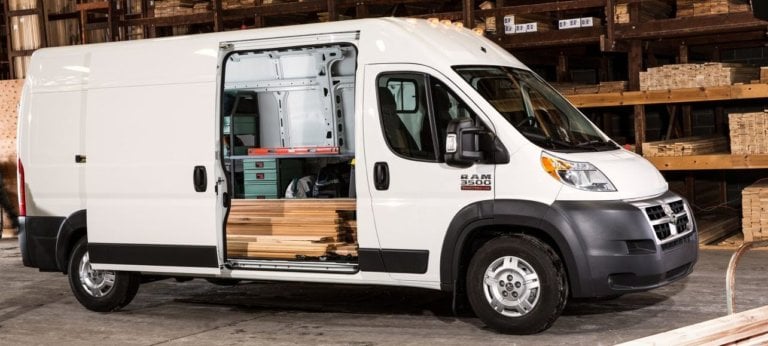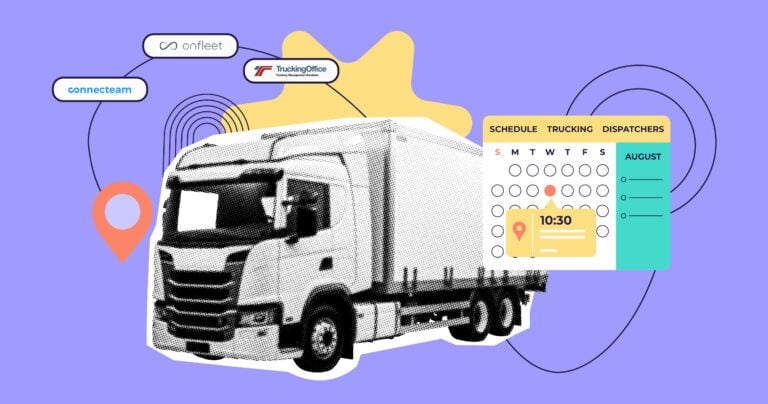For many companies, vehicles are the workhorses, carrying tools, equipment, and workers to jobsites, day in and day out. As such, the company van is a core purchase that defines the kind of work you carry out, the types of customers you serve, and the sorts of employees you hire. The size and versatility of a van impact its capabilities; make sure to consider towing capacity, mileage, cargo space, and other specifications uniquely required by your company’s services.
How to Choose the Right Cargo Van for Your Business
Choosing the right cargo van is all about making sure the vehicle fits how you work. Here are a few things to consider before you buy a van:
Weight capacity
Florists, painters, and plumbers all have different weights they need their vans to regularly carry. Think about your needs, and be aware that overloading can lead to faster wear, possible safety risks, and higher maintenance costs. Always compare payload specs between van models.
Space and dimensions
Check interior height and length, and if you can stand up inside. This will give an indication of if the van will fit all your tools or equipment. HVAC businesses and caterers may need taller, wider vans, whereas delivery services might need a more agile van. On average, full-sized cargo vans usually have a capacity of between 200–500 cubic feet.
Fuel economy
Gas mileage will definitely impact your long-term costs, especially for teams that are constantly driving. Smaller vans are often more fuel efficient, but larger vans typically have a larger load capacity. Fuel efficiency should be a major consideration when choosing your cargo van.
Safety features
Choosing a safe model helps protect your drivers on the road, keep insurance premiums down, and reduce accidents. Your cargo van should come with modern safety features, such as:
- Blind spot monitoring
- Rearview and 360° cameras
- Lane keeping assist (LKA)
- Forward collision warning (FCW)
- Automatic emergency braking (AEB)
Driver comfort
If your team is going to spend long hours behind the wheel, then take comfort into account when choosing a van. Think of the van as a mobile office, and check for features like ergonomic seats, climate control, good visibility, Bluetooth, CarPlay, or even extra cupholders.
Reliability and maintenance needs
This is where reviews and data matters. See what owners have said to know if a van at a lower price point needs more maintenance down the line. Check warranty options and how close service centers are to you.
Customization and upfitting
Think about your customization needs. You might want to add branding on the exterior, which could act like a mobile billboard for your business. For the interior, you might have specific things you need like shelves, refrigeration, or racks. Look for models that can accommodate upfitting without a huge price tag.
Budget Considerations for Cargo Vans
Before you choose your cargo van, think about your budget. Cargo vans aren’t cheap, so you should set a realistic budget, taking into account your business’s current cash flow and your plans for future expansion.
Entry-level vans, like the Nissan NV200 start at around $25,000, while the Ram ProMaster City usually costs under $30,000. Meanwhile, full-size models can range anywhere from $40,000 for vans like the Ford Transit, up to over $50,000 for a Mercedes-Benz Sprinter.
There are additional costs to consider, including taxes, vehicle registration, insurance, upfitting, and routine maintenance. If you have a limited budget, starting with a used model might be a good way to go.
Should you buy or lease a cargo van?
There are different reasons you may want to buy or lease your cargo van. Think about your expected usage, maintenance plans, and taxes before you decide. Here’s what else to consider:
- Buying: Purchasing a van means that you have higher upfront costs, but full ownership. It’s the best option for long-term use and resale value. If you plan on driving many miles, or need to make custom modifications, buying is a good idea.
- Leasing: If you plan to lease, it means you need less initial cash and gives you more flexibility in terms of upgrading more frequently. It’s good if you want the most modern vans, but don’t plan on racking up excessive mileage.
Installation/Construction/Commercial Vans
Before you make your next cargo van purchase, make sure you’re buying a quality vehicle that’s capable of meeting the demands of your trade. Here’s a rundown of ten van models you might consider, as well as what actual business owners have to say about them:
Mercedes Sprinter
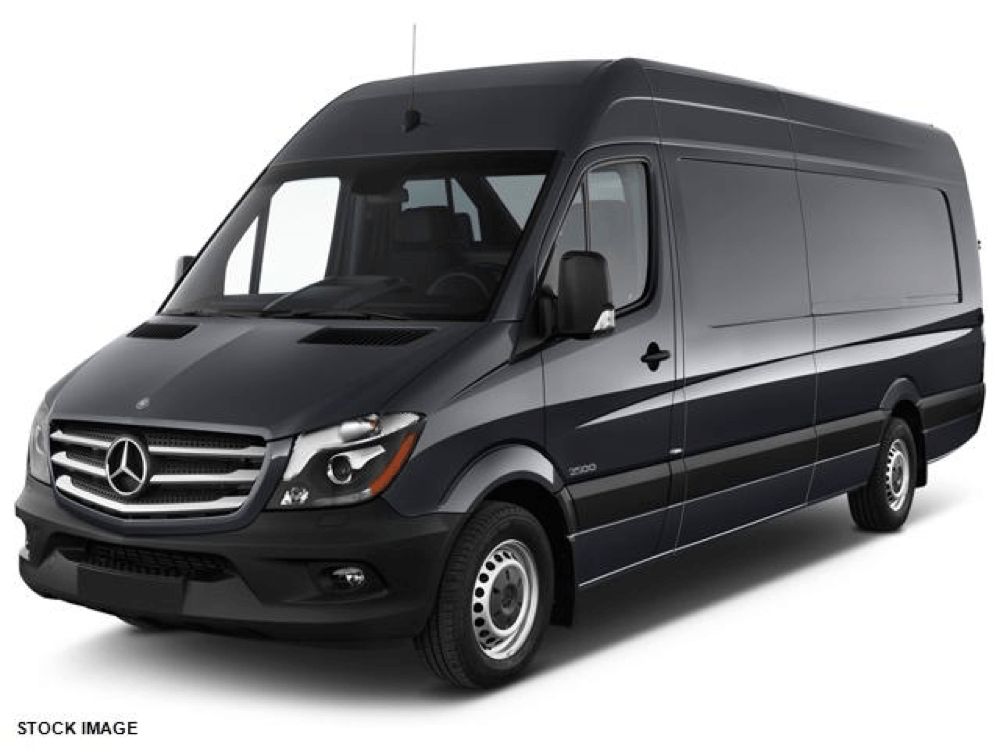
MPG: 19
Storage (width x height): 70.1″ x 66.5″
Engine type: Diesel
Price: Full-size starts at $33,790* mid-size starts at $26,570*.
The van we most highly recommend for heavy-duty work is the Mercedes Benz Sprinter. It might be on the expensive side, but you get a big loading capacity, good mileage, and loads of features with this diesel van. Keep in mid, maintenance costs can run high. An HVAC company owner from Montreal writes:
We have three going on four vans, and Sprinter is far better in fuel economy. Usage is also amazing because of the high top. Costs more, but does a whole lot more, so we’re switching to all Sprinters.
2018 NV CARGO
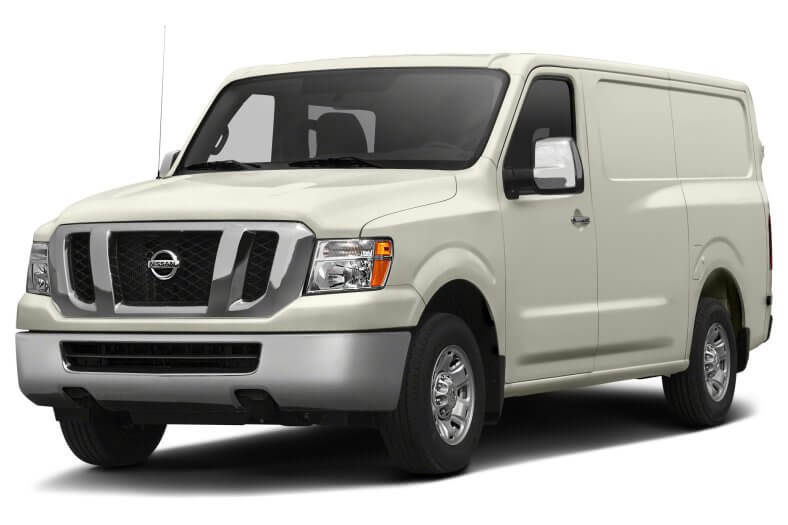
MPG: 24
Feature: 261-hp, 4.0-L V6 engine
Engine type: Petrol
Price: starts at $28,850
Our second highest recommended van is the NV Cargo, which offers a lot of cargo room and excellent reliability, for a reasonable price. It’s not at the top of our list for fuel economy, but owners find a lot to appreciate about its roomy interior and low maintenance costs.
“We’ve had our Nissan for three years – still has original brakes, only been down for the oil changes – no repairs!” writes an HVAC business owner from San Antonio. Another HVAC business owner from Arkansas was delighted with the cargo space, noting,
With shelving on both sides, I still can get a five ton condenser on a skid in between them. Plus, I can stand up and walk around inside without having to stoop over.
Chevrolet Express
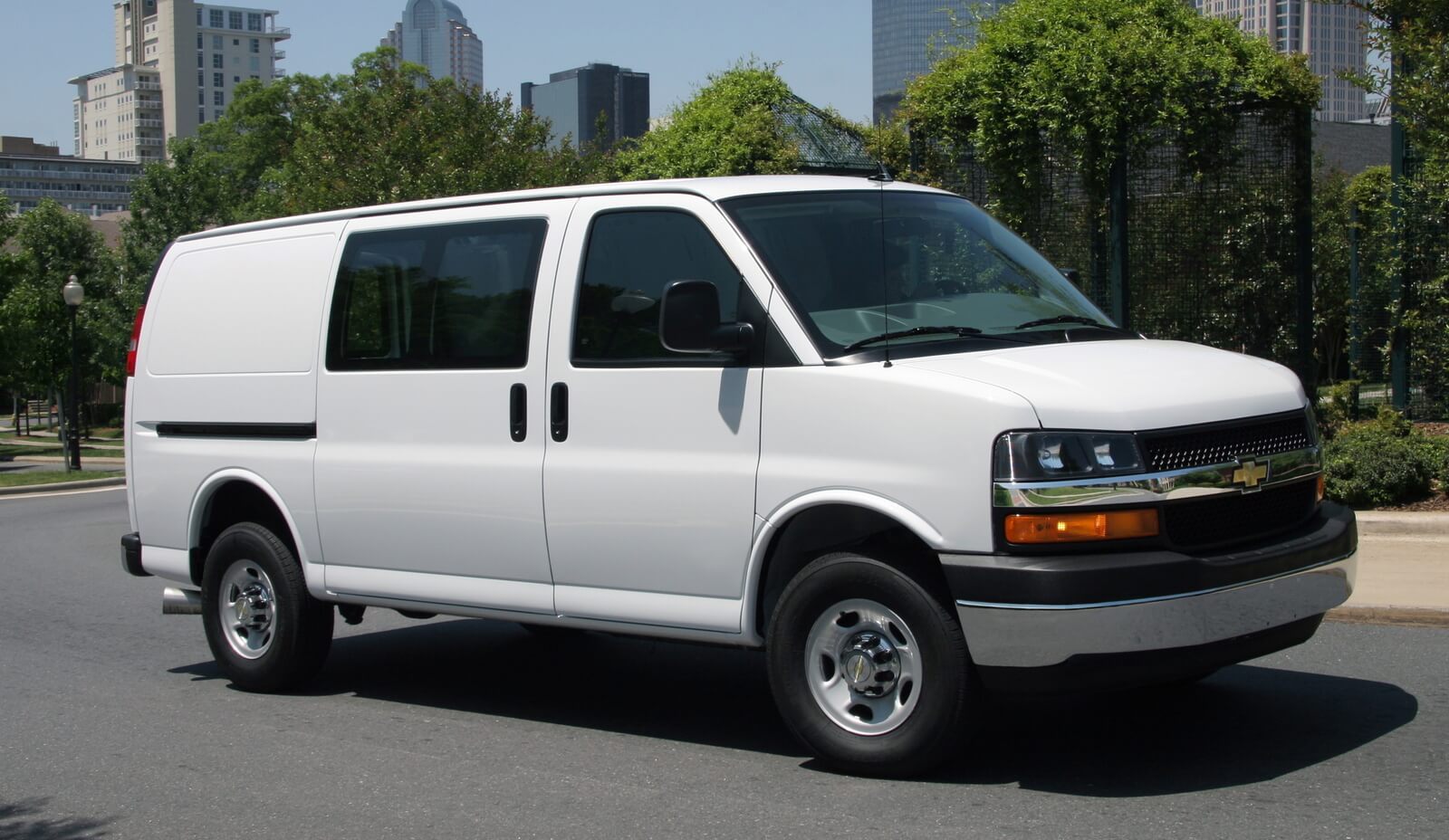
MPG: 15
Available max payload 4,282 pounds
Max Available towing 10,000 pounds
Engine type: Petrol
Price: $31,000
The Chevrolet Express may lack the cargo room and traction control features common in the other commercial vans on this list, but its reputation for reliability and low maintenance needs have earned it a following, among many of our readers. The Express Cargo Van does allow you to also personalize the exterior and interior. “Express is my pick, hands down,” writes an HVAC business owner from Oregon.
Bought brand new, now at 155,000 miles with regular service and maintenance; this van never skips a beat!
Ford Transit
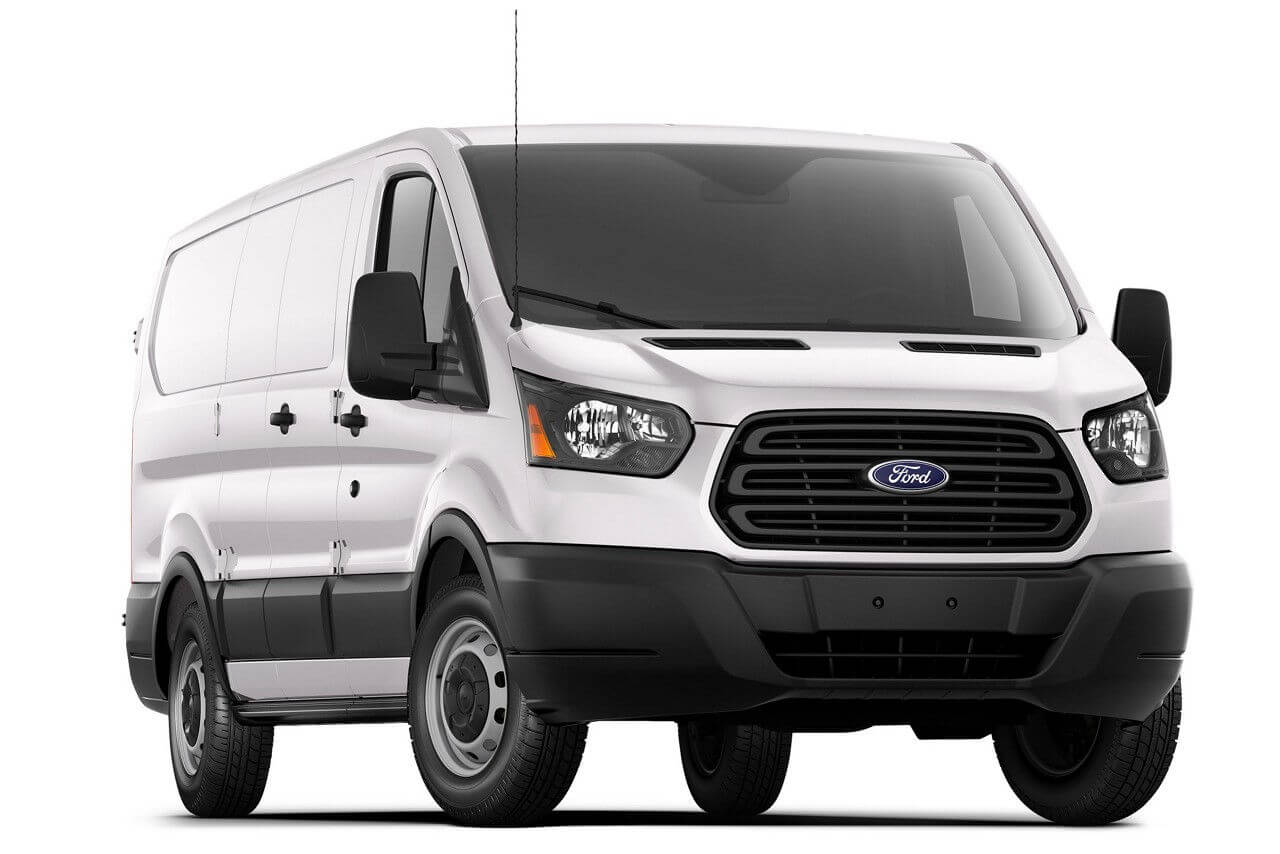
MPG: 22
Weighs 1,600 pounds with 135 cubic feet of storage space.
Engine type: Petrol
Price: $33,000
The Ford Transit handles smoothly and boasts a high cargo capacity and good safety features, including ABS and driveline traction control, but some owners report reliability problems. “We have eight of them, and they all have issues,” writes an HVAC shop owner from Illinois. “Mine has only 19,000 miles, and the transmission is horrible already.” Another owner from South Carolina says, “I like it. Only flaw is the emergency brake between seats”.
Dodge Ram ProMaster
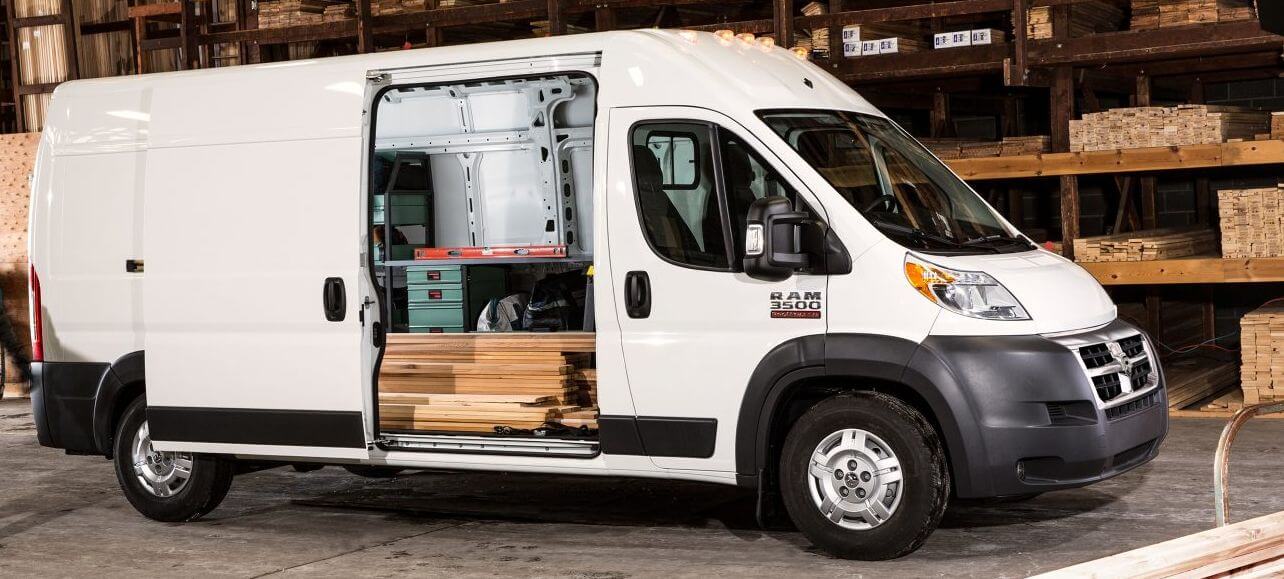
MPG: 15
Over 460 cubic feet of cargo capacity
Engine type: Petrol
Price: starts at $29,295
The van with the fewest recommendations from our readers is the Dodge ProMaster. The sticker price and cargo capacity might not look bad on paper, but reliability issues and mechanical problems are what kept the ProMaster from winning over owners. It does have front wheel drive and wide door openings. A New Jersey HVAC shop owner writes, “ProMasters are the biggest hunks of s*%t! We had a few in our fleet, and every other week, they were down, and that’s not counting the recalls.” Another HVAC shop owner from Toronto added,
“We have three ProMasters, all have problems, and one has been at the dealer for a month”.
Service/Maintenance Vans (City Vans)
Mercedes Metris
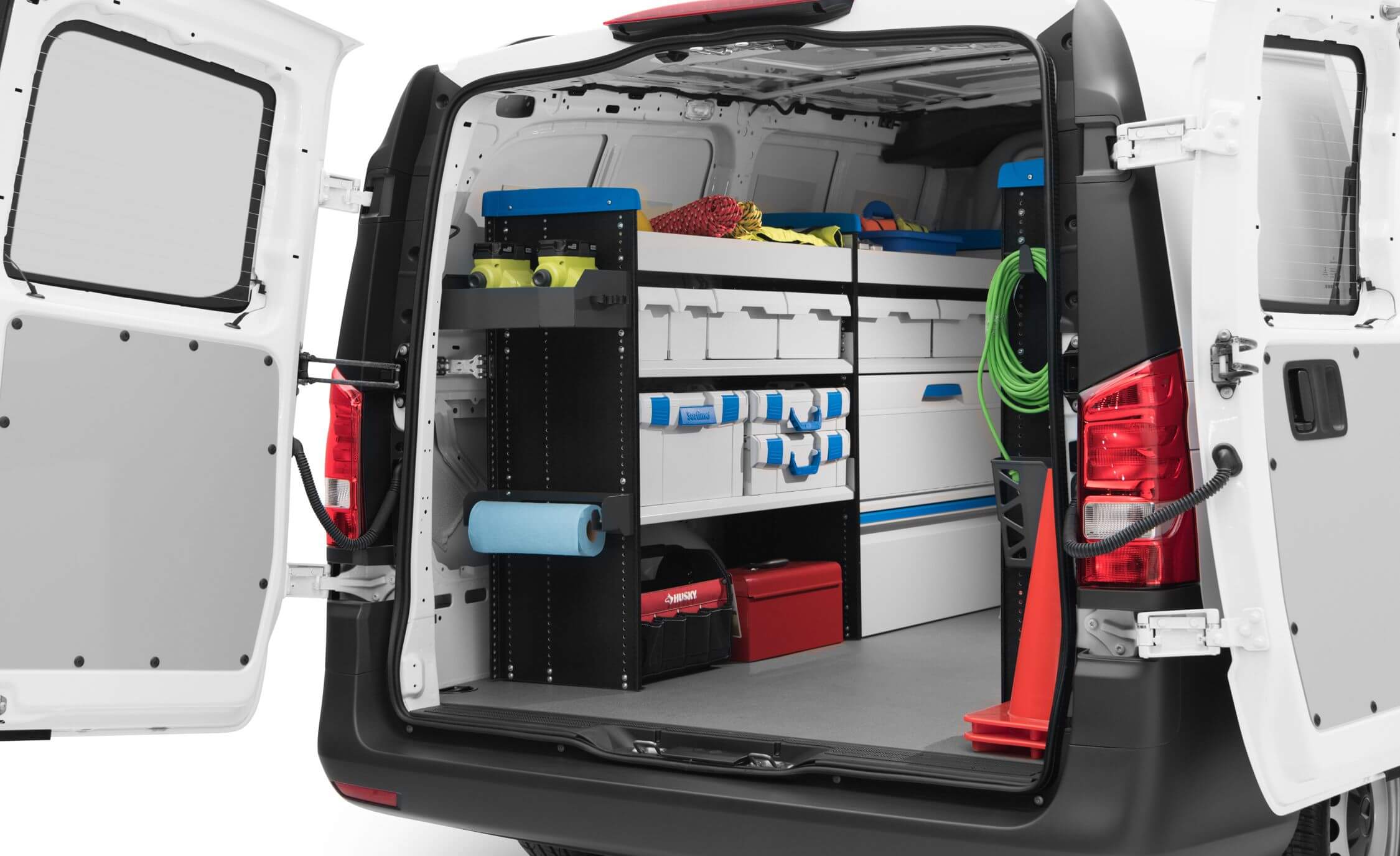
MPG: 22
199 cubic feet of cargo space
Engine type: Petrol
Price: $31,000
With the Metris, Mercedes Benz cleans up nicely, as far as the service and maintenance van category goes. With its high performance, wealth of features, and reliability, the Metris balances out the relatively high maintenance costs.
“We love our Mercedes… the maintenance is expensive, but maintenance intervals are longer. Gas mileage is way better. And, they last longer, so the return on investment is worth it,” writes an HVAC shop owner in Atlanta. Another HVAC shop owner out of California puts it concisely, “They are sweet!”
Nissan NV 200
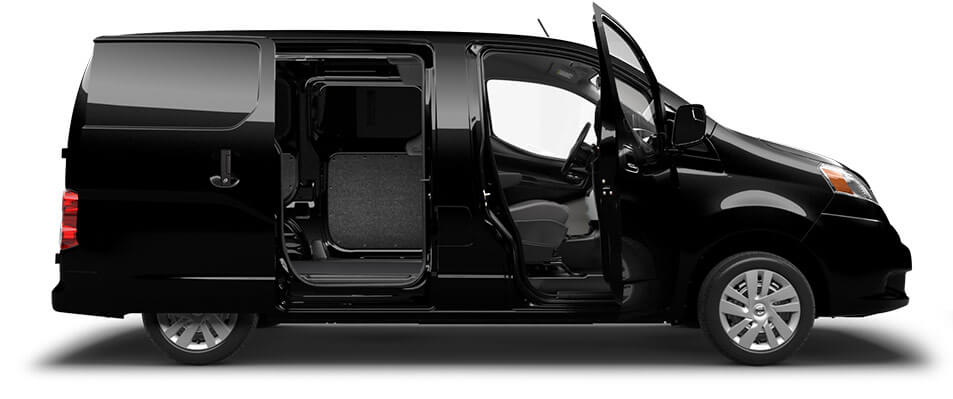
MPG: 25
Storage (width x height): 54.8″ x 53″
Engine type: Petrol
Price: starts at $22,200
If you don’t need a huge amount of cargo space, the Nissan NV 200 can be a great buy, with excellent gas mileage and a low base price.It also boasts of 2.0-L DOHC 16-valve 4-cylinder engine. Our readers had lots of good things to say about it. “We had two, including one with shelving, ladder racks and a conduit box, and one without that we used to pick up orders as needed. They are great for residential service calls,” writes an HVAC shop owner from Louisiana. An HVAC company owner out of Oregon says,
We are buying NVs as our new go-to. They drive the best, and blow away the others’ warranties. Guys are all envious of the guy with one.
Express Cargo Can
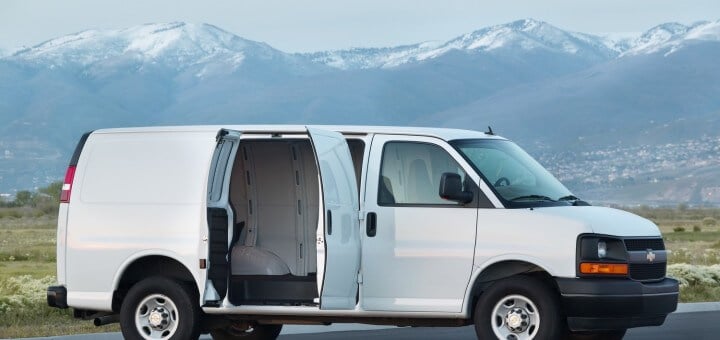
MPG: 24
4.3L V6 engine with 276 horsepower
Engine type: Petrol or Diesel
Price: starts at $31,000
The Express Cargo Van has a full-frame design with an incredibly powerful engine, plus it has a ton of cargo room and available technology. Choose from the 2500 or 2500 Express. It doesn’t have as much space and capacity as its competitors but you do get three wheelbase lengths, passenger or cargo variants. One review came out and said, “I have owned over 20 of these vehicles and would recommend it over any other full size van. Great durability and power. Not the best for large people (I am 6 foot 4 inches tall) but the best I have found of the full size vans. The worst features are the outside mirrors and the cargo doors, be ready to replace the plastic clips that hold the latch actuator rods. Overall, everyone of these vans I have owned has passed 250,000 miles. Of all the vans I have owned, I have only replaced two batteries, one water pump, 1 transmission and multiple door clips.”
Ram ProMaster City
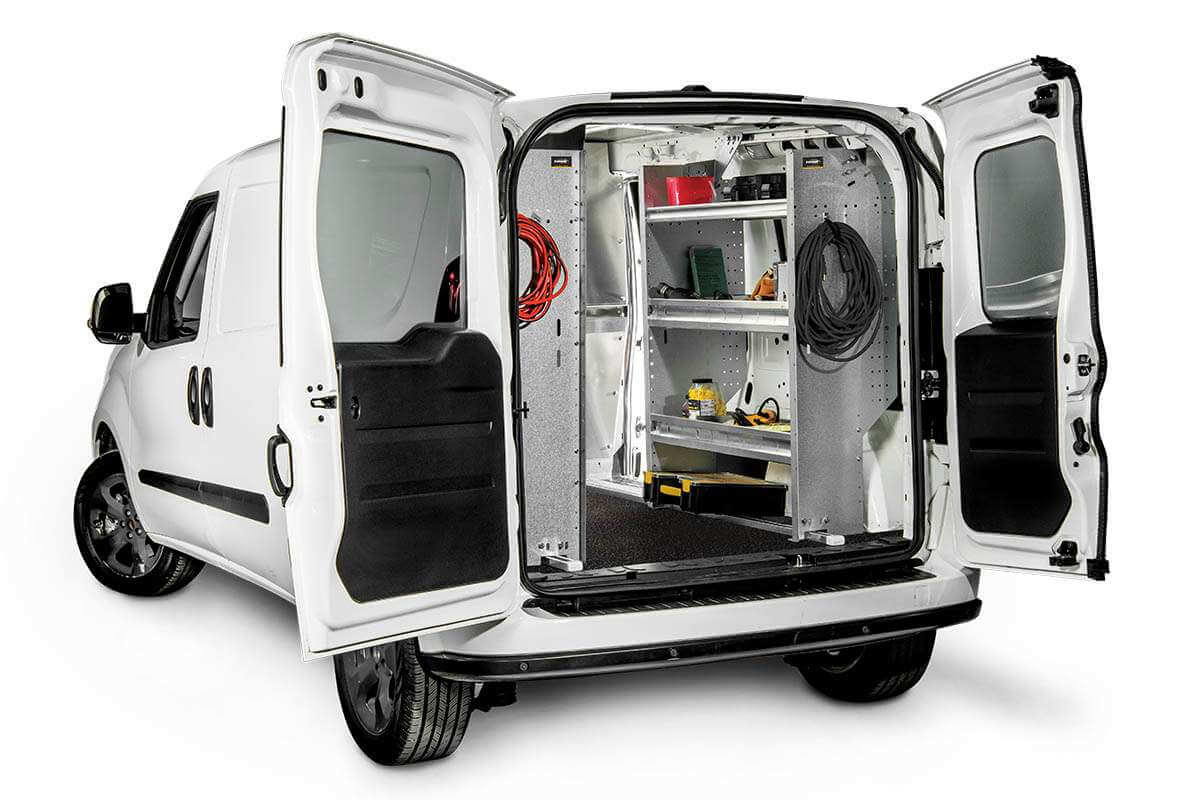
MPG: 24/27
Storage (width x height): 60.4″ x 51.8″
Engine type: Petrol
Price: starts at $24,000
The Ram ProMaster City may not stand head and shoulders above the rest of the vans on this list, but it meets solid benchmarks for capacity, traction control, reliability, and fuel economy, at a reasonable sticker price. “They are tight on space, but you can’t beat the mileage”. Writes an HVAC business owner from Oregon. However, some drivers report clunky shifting and a tendency for the van to lean when cornering.
Ford Transit Connect
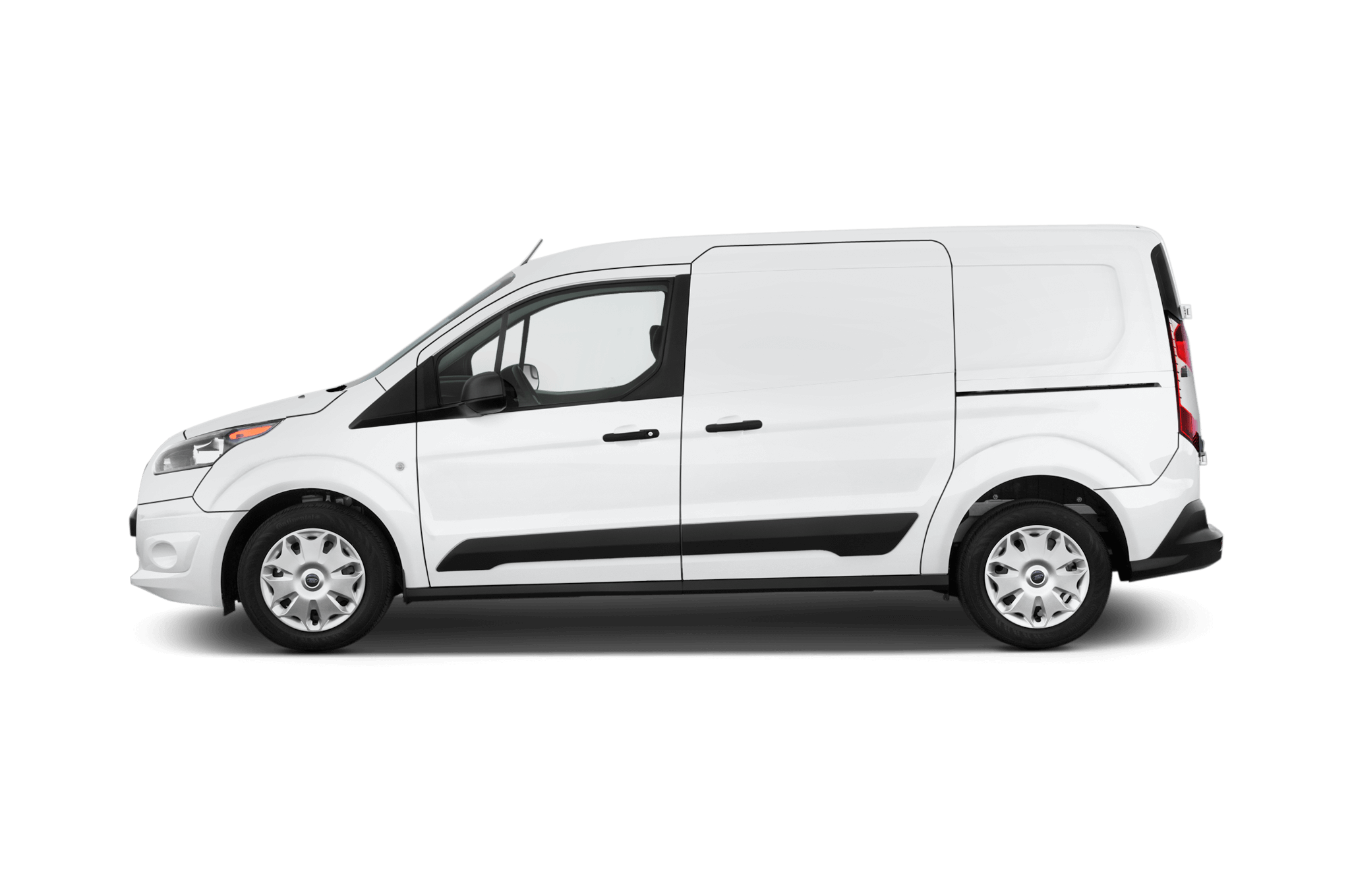
MPG: 20
Storage (width x height): 48.3″ x 49.7″
Engine type: Petrol
Price: $27,000
Last, and certainly – according to our readers – least, as far as recommendations are concerned, is the Ford Transit Connect. The gas mileage isn’t terrible, but it comes with a fairly high price, for the smallest cargo space on this list, and many drivers report issues with reliability. “Will not buy any more Transits. They don’t compare to the ProMaster yet cost more and require more maintenance so far”, writes an HVAC shop owner from Oregon. An HVAC manager out of Ohio puts it bluntly, “Absolutely not! All but worthless. If you put shelves in it, that’s it. It’s full”.
Comparing the top cargo vans
Now that we’ve gone over some of the best cargo vans on the market, let’s take a closer look at the specs in the comparison table below:
| Model | MPG | Cargo Space (cu ft) | Engine Type | Starting Price | Max Payload | Pros | Cons |
| Mercedes Sprinter | 19 | 319+ (high-roof models) | Diesel | $50,900+ (2025) | Payload ~6,500 lbs | High cargo volume, fuel-efficient diesel, reliable brand | High maintenance costs |
| Nissan NV Cargo | 24 | ~234 | Petrol | $28,850 | Payload ~3,800 lbs | Low maintenance, roomy, affordable | Lacks some tech features |
| Chevrolet Express | 15 | ~284 | Petrol | $31,000 | Payload: 4,282 lbs | Very durable, low maintenance, powerful towing | Lower MPG, dated design |
| Ford Transit | 22 | ~246 | Petrol | $40,000+ (2025) | Payload ~4,000 lbs | Good safety features, smooth handling | Reported reliability issues |
| Ram ProMaster | 15 | 460 | Petrol | $29,295 | Payload: ~4,680 lbs | Great cargo space, easy loading with FWD | Reliability concerns |
| Mercedes Metris | 22 | 199 | Petrol | $31,000 | Payload ~2,500 lbs | High performance, good mileage, long lifespan | High maintenance cost |
| Nissan NV200 | 25 | ~122 | Petrol | ~$25,000 (est.) | Payload ~1,500 lbs | Compact, great for city, excellent mileage | Limited cargo space |
| Express Cargo Van (2500) | 24 | ~283 | Petrol/Diesel | $31,000 | Similar to Chevy Express | Durable, strong V6 engine | Cramped cabin |
| Ram ProMaster City | 24–27 | ~132 | Petrol | $24,000 | Payload ~1,900 lbs | Good mileage, solid value | Tight interior, lean in turns |
| Ford Transit Connect | 20 | ~104 | Petrol | $27,000 | Payload ~1,570 lbs | Maneuverable, decent fuel economy | Cramped, low reliability |
The Reviews Are In
If you’ve got the budget for it, Mercedes is likely to provide the best overall quality for both heavy-duty and light van requirements. However, if you don’t want to invest that much in the initial purchase or in ongoing maintenance, there are plenty of other viable options.
The vans you and your employees drive say a lot about the standards of professionalism your company adheres to. Plus, drivers appreciate a reliable, well-made vehicle that handles well and makes them feel safe on the roads. When it’s time to add to your fleet, make sure you’ve done your research to ensure you choose the right vehicles for your company.
“Connecteam helped us transition from a handful of productivity apps into ONE”
Choose Connecteam as your tool to manage employee engagement, development, and relationship.

FAQs
What are the best cargo vans for long-distance driving?
The Mercedes Sprinter and Ford Transit are good options for long hauls. They offer comfort, strong fuel efficiency, and safety features, ideal for long-distance driving.
Where can I find the best deals on cargo vans?
Certified pre-owned programs, local dealerships, and fleet sales are good places to check. There are also websites like Autotrader, CarGurus, and commercial vehicle auctions that typically have good offers.
What are the different cargo van body styles available?
Body styles include: low roof, mid roof, high roof, standard/extended wheelbase. There are also compact city vans and full-size commercial vans.
What are the insurance costs for these types of vans?
Insurance depends on your location, a driver’s history, and the value of the van. For a full-size cargo van, insurance can range from $1,400 to over $3,000 a year, according to Insurify.

